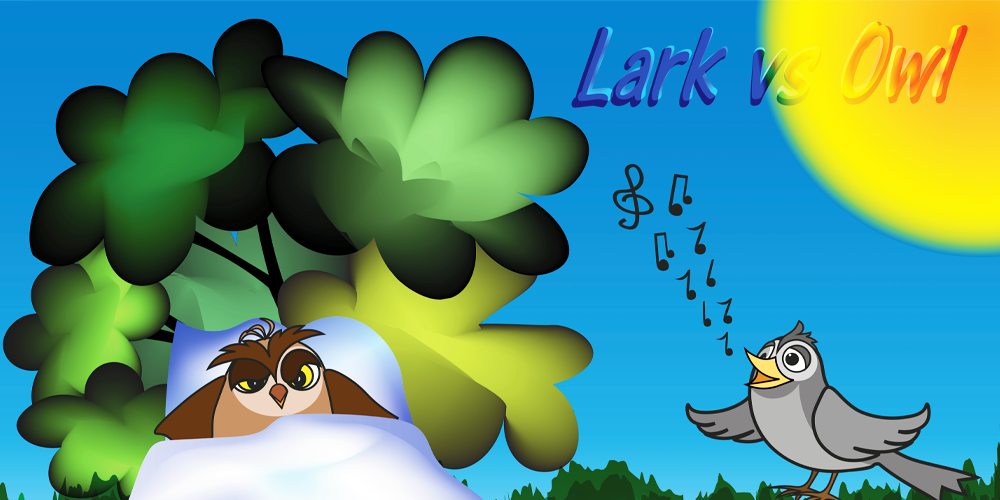Are You a Night Owl or a Morning Lark?

Recent research about sleep and sleep behaviours was carried out by the British Wool organisation, and with some surprising results. Here’s a few things they discovered:
· On average, Brits wake up three times a night. There are many reasons for this, including being too hot; 48% polled specified this issue as the cause for a disrupted night’s sleep.
· 48% of us find it difficult to ‘switch off’ with 22% worrying about work and what we need to do at the office the next day.
· Of those asked as part of the study, 78% of Britons insist on sleeping on the same side of the bed each night.
· Almost two thirds (62%) confessed that they snore at night – with 12% admitting they do it all the time!
The study also revealed that Britain is home to a nation of night owls, with six in ten Brits saying that they go to bed late and like to sleep in, compared to 40% who describe themselves as morning larks or early birds.
Morning Larks tend to go to bed early, wake up early and feel their best as the day begins. They also tend to have less energy in the late afternoon and evening, resulting in them finding it hard to stay awake past a certain hour. Research has shown that early risers tend to have an easier time adjusting to standard daytime schedules, which can make it easier to function at workplaces that operate during the day or have an early start. Morning Larks are also known as ‘early birds’, a term which has its origins in a 17th century proverb – ‘the early bird catches the worm’.
Night owls tend to stay up late and enjoy sleeping in. They feel at their best later in the day and have more energy at night. The downside to this is that they often feel tired after waking up early and can have a hard time staying alert during the day. As most of society is structured around a daytime schedule, late risers may have a harder time getting to work early.
Whichever describes you best, researchers from a 2020 study found that your genetics may help explain - and Circadian rhythms, which help to control your sleep/wakefulness patterns, have a significant impact. These rhythms are influenced by light and dark and is one of four biological rhythms in your body. A combination of cells in your body, hormones, body temperature and metabolism, also all influence your Circadian rhythm.
Research also shows that your sleeping environment will also have a huge impact on your sleep patterns. Sleeping in bedding that is natural, breathable and temperature regulating will help to ensure a more even sleep throughout the night. At Devon Duvets, all of our individually handcrafted duvets, pillows and mattress toppers are made, here in Devon, using responsibly sourced, sustainable, 100% natural materials and fillings that are breathable and temperature regulating - and are designed to help you sleep better. For more information, please get in touch and we’ll help guide you to choose the best bedding for your sleep.
Ref: British Wool, Healthline


